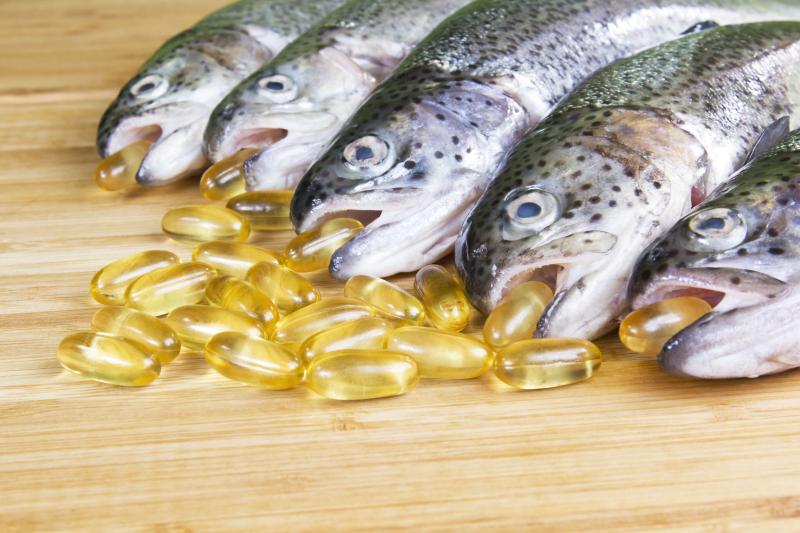 Omega-3 can likely help improve heart health and reduce risk of heart disease
Omega-3 can likely help improve heart health and reduce risk of heart diseaseOily fish consumption confers a beneficial effect on serum triacylglycerol and high-density lipoprotein cholesterol (HDL-C) in a dose-dependent manner, but not on blood pressure (BP), heart rate variability (HRV) and glucose homeostasis, in children aged 8–9 years, according to a study.
“This supports recommendations for fish intake in children and underlines the importance of initiatives to increase children's intake of oily fish,” the investigators said.
This 12-week trial randomized 199 children to receive either ∼300 g/wk of oily fish or poultry (control). The investigators measured BP, heart rate and HRV using 3-h continuous electrocardiograms and collected fasting blood samples for analysis of erythrocyte EPA + DHA and serum triacylglycerol, low-density lipoprotein and HDL-C, glucose, and insulin.
Of the children, 197 (99 percent) completed the trial. The fish group consumed a median of 375 g oily fish/week, while the poultry group consumed 400 g poultry/week, resulting in 2.25 (95 percent confidence interval [CI], 1.88–2.62) fatty acid percentage-point higher erythrocyte EPA + DHA in the former (p<0.001).
The fish group showed a decrease in serum triacylglycerol by 0.05 mmol/L (95 percent CI, 0.00–0.11 mmol/L; p=0.04) and an increase in HDL-C by 0.07 mmol/L (95 percent CI, 0.01–0.13 mmol/L; p=0.02). The triacylglycerol effect was dose-dependent with erythrocyte EPA + DHA (r, –0.15; p=0.04), while the HDL showed a tendency for such an association (r, 0.13; p=0.08).
In additional analyses, sex-specificity was observed (p<0.10), with triacylglycerol decreasing by 0.09 mmol/L (95 percent CI, 0.02–0.16 mmol/L) in boys only (girls: –0.00, 95 percent CI, –0.07 to 0.07 mmol/L) and heart rate decreasing by 3.4 bpm (95 percent CI, 0.02–6.6 bpm) in girls only (boys: 0.6, 95 percent CI, –2.6 to 3.8 bpm).
BP, HRV and glucose homeostasis were not affected.
“Fish oil improves cardiometabolic markers in adults, but results in children are inconsistent,” the investigators said. “Few children meet the recommended fish intake, and no randomized trials have investigated how fish intake per se affects children's cardiometabolic profile.”